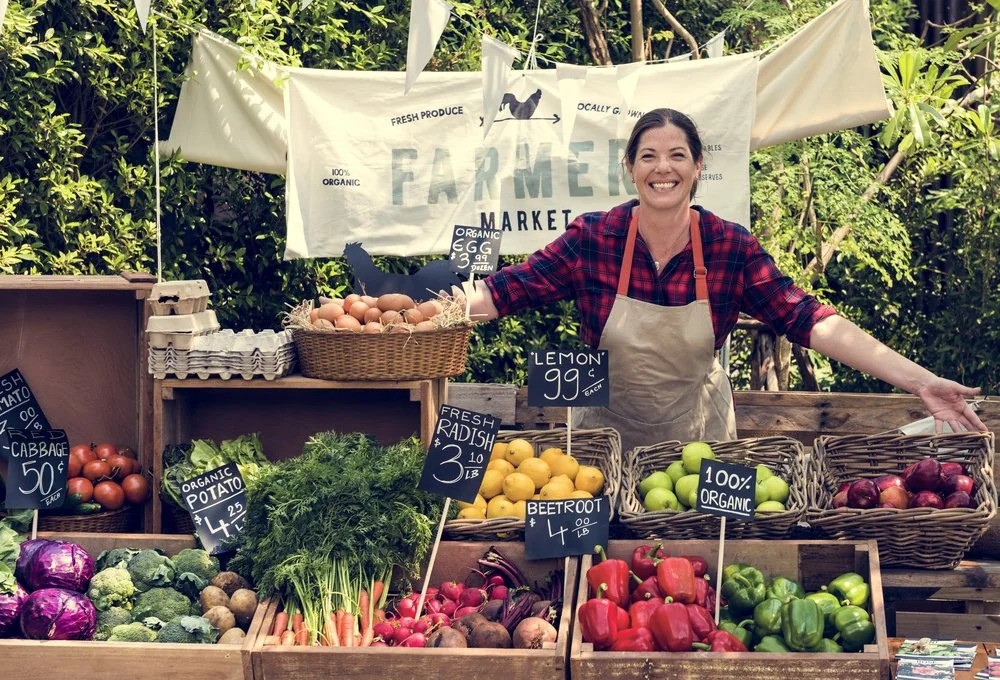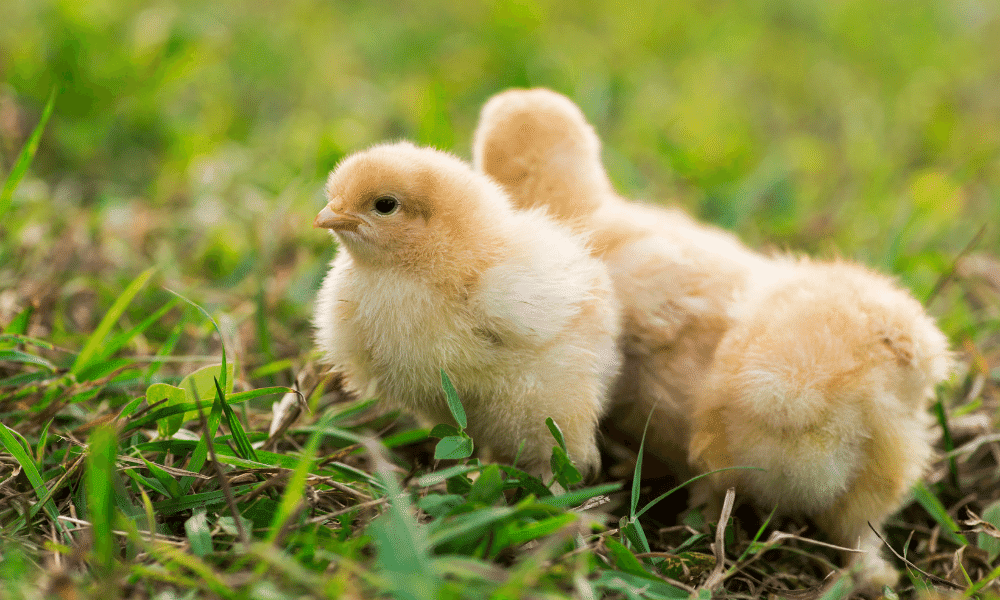The Yorkshire Pig: Everything You Need to Know
The Yorkshire pig, often referred to as the American Yorkshire pig, is one of the most recognized and widely used pig breeds around the world. Known for its excellent meat quality, adaptability, and durability, the Yorkshire pig plays an essential role in modern agriculture. In this blog, we'll explore the origination of the breed, distinctive characteristics, care requirements, and some fun facts about these remarkable pigs!
Where did the Yorkshire Pig originate?
Yorkshire pigs trace their roots to 18th-century Yorkshire, England, where they were bred for their large size and excellent meat production. By the early 19th century, they had been imported to the United States, where they were further developed into the American Yorkshire breed, valued for its adaptability and high productivity.
Yorkshire Pig Breed Characteristics
The Yorkshire pig distinctive markings include erect ears and a slightly dished face. Although they are primarily white, their skin can sometimes show small freckles or dark spots. Yorkshire pigs distinctive features include their strong, lean build, which makes them ideal for commercial pork production.
Yorkshire pig special characteristics:
Large and muscular body
Erect ears
Smooth white skin with occasional freckles
High growth rate and excellent feed conversion
How big can Yorkshire pigs get? The average Yorkshire pig weight is between 500 to 700 pounds for females (sows) and 600 to 800 pounds for males (boars).
Yorkshire Pig Temperament
Yorkshire pigs are known for their friendly and sociable temperament. They are generally calm and easy to handle, making them a popular choice for both commercial farmers and hobbyists. Their gentle nature allows them to coexist well with other animals, and they often form strong bonds with their caretakers. Yorkshire pigs are also intelligent and curious, which can lead to playful behavior. This temperament makes them suitable for various farming environments, including those where they may be raised as show pigs.
Breed Purpose
What are Yorkshire pigs used for? Yorkshire pigs are primarily bred for meat production. Their lean, high-quality pork makes them a favorite in the agricultural industry. They are often used in crossbreeding programs to improve the quality and growth rate of other breeds, such as Hampshire Yorkshire cross pigs and Yorkshire Duroc cross pigs.
Yorkshire Show Pigs
Yorkshire show pigs are specifically bred and raised for competitive events, such as county fairs and livestock shows. These pigs are selected for their conformation, size, and overall appearance, as well as their temperament. Show pigs are often groomed and trained to present their best features during competitions. Yorkshire pigs are favored in the show ring due to their muscular build, high-quality meat, and striking appearance. Their friendly disposition also makes them easier to handle during shows, contributing to their popularity among exhibitors.
Raising Yorkshire show pigs requires attention to detail, including proper nutrition, health care, and training. Successful show pig owners often invest time in socializing their pigs to ensure they are comfortable in the show environment. With the right care and preparation, Yorkshire show pigs can excel in competitions, showcasing the breed's exceptional qualities.
Marketplace
You might also be interested in...

Shop for chickens, livestock or other farm goods

About Farm Expo Events

Sell Your Chicks and Eggs
Average Lifespan for Yorkshire Pigs
The Yorkshire pig life span is typically 6 to 10 years under optimal conditions. However, pigs raised for meat production are often slaughtered at a much younger age, around 6 to 9 months.
Why are Yorkshire pigs slaughtered at a young age? Yorkshire pigs raised for commercial meat production are slaughtered young because their meat is most tender and profitable during this stage.
Best Care and Housing for Yorkshire Pigs
Proper care and housing are crucial to raising Yorkshire pigs. Here are some key tips:
Shelter: Provide a clean, dry, and well-ventilated barn or shelter to protect pigs from harsh weather.
Space: Yorkshire pigs require ample space to roam and exercise. Allow at least 8-10 square feet per pig.
Bedding: Use straw or hay for comfortable bedding, which also helps regulate body temperature.
Ideal Weather and Temperature for Yorkshire Pigs
Yorkshire pigs are adaptable but prefer moderate climates. The ideal temperature for Yorkshire pigs is between 50°F and 70°F. Extreme heat or cold can stress the pigs and impact their growth.
Nutritional Requirements
Yorkshire pigs require a balanced diet rich in protein, vitamins, and minerals to thrive. Here is a breakdown of their nutritional needs:
Feed: High-quality commercial pig feed or grains like corn, barley, and soybeans.
Water: Provide clean, fresh water at all times.
Supplements: Add essential minerals like calcium and phosphorus to support bone growth.
Common Ailments for Yorkshire Pigs
Like all livestock, Yorkshire pigs are prone to certain illnesses, including:
Respiratory Diseases (pneumonia)
Swine Dysentery
Gastrointestinal Infections
Foot and Hoof Issues
Regular veterinary checkups, vaccinations, and a clean environment can help prevent these ailments.
Yorkshire Pigs Average Litter Size
Yorkshire pigs are known for their excellent mothering abilities and large litter sizes. The average litter size for a Yorkshire pig is 10-12 piglets per pregnancy.
Average Cost of Yorkshire Pigs
Baby Yorkshire pigs for sale: $50 - $150 depending on location and quality.
Full-grown Yorkshire pigs: $300 - $600 depending on weight and purpose (breeding or meat production).
Yorkshire Crossbreeds
Yorkshire pigs are often crossed with other breeds to enhance specific traits:
Yorkshire Landrace Cross Pigs: Known for their exceptional maternal abilities and high litter sizes, this cross produces highly productive sows.
Yorkshire Hampshire Pigs: This combination balances the lean meat production of Yorkshires with the muscle quality of Hampshires.
Yorkshire Feeder Pigs: Young pigs that are sold to farmers for finishing (feeding to market weight). They are cost-effective and grow quickly.
Yorkshire Berkshire Cross Pigs: This cross combines the tenderness of Berkshire pork with the fast-growing and lean qualities of Yorkshire pigs.
Hereford Yorkshire Cross Pigs: This cross results in pigs with excellent foraging abilities, good temperament, and high-quality pork production.
Hampshire vs Yorkshire Pigs: Hampshire pigs are known for their distinct black coloring with a white belt and their heavily muscled build, making them a favorite for high-yield pork production. In contrast, Yorkshire pigs are white, have a leaner build, and are often praised for their reproductive traits and adaptability. Choosing between these breeds depends on whether the focus is on meat quality or breeding efficiency.
Pros and Cons of Yorkshire Pigs
Pros of Yorkshire Pigs:
High-quality lean meat
Excellent reproductive traits
Adaptable to various climates
Fast growth and feed efficiency
Cons of Yorkshire Pigs:
Sensitive to extreme temperatures
Require spacious housing for best health
Prone to common pig diseases if not cared for properly
Registered Yorkshire Pigs for Sale
For those interested in breeding or raising Yorkshire pigs, purchasing registered pigs is a great option. Registered Yorkshire pigs come with documentation verifying their pedigree and genetic quality, making them ideal for breeding programs or show purposes. These pigs are often available through specialized breeders or swine associations.
Benefits of Registered Yorkshire Pigs:
Assurance of high-quality genetics
Suitable for competitions and agricultural fairs
Greater resale value due to pedigree
To find registered Yorkshire pigs for sale, consult local breeders, swine organizations, or online livestock marketplaces.
3 Fun Facts About Yorkshire Pigs
Yorkshire pigs are known for their adaptability to various climates, which makes them ideal for farms worldwide.
They hold records for producing large litters, making them one of the most prolific pig breeds.
Yorkshire pigs were once called the "Large White" due to their distinctive white coloring.
Funny Facts About Yorkshire Pigs
Yorkshire pigs love to "talk" and are known for their vocal grunts and squeals!
They are surprisingly clean animals and prefer designated "bathroom areas."
Despite their size, Yorkshire pigs are playful and enjoy rooting around for treats.
The Yorkshire pig is a versatile, adaptable, and productive breed that has earned its place on farms worldwide. With their distinctive characteristics, high-quality pork, and excellent reproductive traits, Yorkshire pigs continue to be a cornerstone of the swine industry. Whether you're looking to raise Yorkshire pigs for sale or simply want to learn more about these fascinating animals, their unique features and fun facts make them a breed worth celebrating!
For those interested in raising pigs or learning more about the Yorkshire breed, always consider the care, housing, and nutritional requirements to ensure happy and healthy animals.
FAQ: All About Yorkshire Pigs
-
A Yorkshire pig, also known as the American Yorkshire pig, is a highly recognized and widely used breed of domestic pig. This breed is known for its lean build, high-quality meat, and adaptability. Yorkshire pigs play a significant role in modern agriculture due to their durability and efficiency in meat production.
-
Where did Yorkshire pigs originate? The origin of Yorkshire pigs dates back to 18th-century Yorkshire, England, where they were bred for their large size and excellent meat production. By the early 19th century, these pigs were introduced to the United States, where the breed was refined into the American Yorkshire pig, renowned for its adaptability and productivity.
-
The distinctive markings for Yorkshire pigs include:
Smooth white skin
Occasional freckles or dark spots
Erect ears
A slightly dished face
These Yorkshire pig markings make them easily identifiable and a favorite among pig breeders.
-
The Yorkshire pig special characteristics include:
Large, muscular body
Erect ears and a strong, lean build
High growth rate and efficient feed conversion
Friendly and calm temperament
These characteristics of Yorkshire pigs make them ideal for both meat production and crossbreeding with other breeds.
-
Yorkshire pig size is impressive, with the average Yorkshire pig weight being:
500-700 pounds for females (sows)
600-800 pounds for males (boars)
If you’re wondering, how big do Yorkshire pigs get? The simple answer is: large enough to be one of the most productive pig breeds in the world.
-
The lifespan for Yorkshire pigs ranges from 6 to 10 years under optimal care. However, pigs raised for commercial purposes are usually slaughtered much earlier, typically at 6-9 months of age, to ensure the meat is tender and market-ready.
-
The reason Yorkshire pigs are slaughtered at a young age is tied to meat quality. The pork from younger pigs is more tender and flavorful, making it ideal for commercial sales.
-
The Yorkshire pig color is primarily white, with their smooth white skin occasionally showing freckles or dark spots. This distinctive color pattern contributes to their nickname “Large White.”
-
Yorkshire pigs are mainly bred for:
Meat production: Known for their lean and tender pork.
Crossbreeding programs: Commonly crossed with breeds like:
Hampshire Yorkshire cross pigs
Yorkshire Duroc cross pigs
Yorkshire Berkshire cross pigs
The Yorkshire pig’s are known for their versatility in improving the traits of other breeds, such as growth rates and meat quality.
-
Yes, Yorkshire pigs are good for meat! They are highly regarded for their lean, high-quality pork, which is tender and flavorful. The breed’s excellent feed conversion and rapid growth make them a top choice for commercial meat production. Yorkshire pigs are also widely used in crossbreeding programs to enhance meat quality in other breeds, such as Hampshire Yorkshire cross pigs and Yorkshire Duroc cross pigs. Their adaptability and high productivity further solidify their reputation as an outstanding meat-producing breed.
-
Yorkshire pig temperament is friendly, calm, and sociable. These pigs are easy to handle and often form strong bonds with their caretakers. This makes them ideal for hobbyists, commercial farmers, and even as Yorkshire show pigs in competitions.
-
A bio for Yorkshire pig would highlight their:
Adaptability to various climates
High reproductive efficiency
Lean, muscular build
Exceptional meat quality
These traits define why Yorkshire pigs are one of the most popular breeds globally.
-
The breed name of a Yorkshire pig is simply “Yorkshire pig,” though they are commonly referred to as American Yorkshire pigs in the United States.
-
Yorkshire pigs are known for their excellent mothering abilities, with an average litter size of 10-12 piglets per pregnancy.
-
Pros:
High-quality, lean meat
Excellent reproductive traits
Adaptable to different climates
Sociable and easy to handle
Cons:
Sensitive to extreme temperatures
Require spacious housing
Prone to common pig diseases without proper care
-
Yorkshire show pigs are selectively bred and raised for livestock competitions. Their distinctive markings, muscular build, and friendly temperament make them ideal for the show ring. These pigs are groomed and trained to highlight their Yorkshire pig distinctive markings and physical traits.
-
The Yorkshire pig physical characteristics include:
Erect ears
Smooth white skin with occasional freckles
Large, muscular build
High growth rate
These characteristics of a Yorkshire pig make them one of the most efficient and versatile breeds.
-
Some interesting facts about Yorkshire pigs include:
They are the most common breed of pig in the U.S.
Their pork is lean and highly sought after in the market.
They are often used in Hampshire Yorkshire cross pigs and other crossbreeding programs.
-
The Yorkshire pig weight averages between 500-800 pounds, depending on the gender and purpose (breeding or meat production).
-
You can find Yorkshire pigs for sale through local breeders, swine organizations, or online marketplaces. Registered Yorkshire pigs for sale often include documentation verifying their pedigree, making them ideal for breeding programs or as Yorkshire show pigs.
-
Popular Yorkshire crossbreeds include:
Yorkshire Landrace cross pigs: Known for high fertility.
Yorkshire Duroc cross pigs: Valued for fast growth and excellent meat quality.
Yorkshire Berkshire cross pigs: Produces tender pork.
Hereford Yorkshire cross pigs: Combines good temperament with high-quality pork.
You might also be interested in…


















Discover farmers markets near you with Roobeez! Explore local events, find seasonal and weekly markets, and shop fresh produce and handmade goods on our marketplace. Contribute to our growing directory by adding your favorite markets and community events. Supporting local has never been easier!